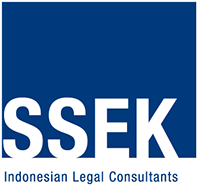 Two recently released regulations have introduced important changes to the Indonesian manpower sector. While the changes should generally be welcomed by the business community, they do highlight the constantly evolving nature of labour and employment regulations in Indonesia, and the need for companies to stay alert to changes that could affect their business.New regulation on expatriate manpower: Indonesia’s Minister of Manpower (MOM) recently issued MOM Regulation No. 35 of 2015, dated October 23, 2015 (MOM Reg 35/2015). This regulation amends MOM Regulation No. 16 of 2015 regarding the Procedure for the Utilisation of Expatriate Manpower (MOM Reg 16/2015). MOM Reg 16/2015 required: the employment of 10 local workers for every expatriate employee; work permits for non-resident Directors and Commissioners of Indonesian companies and for non-resident Patrons, Management and Supervisors of Indonesian foundations; and a temporary work permit for expatriates visiting Indonesia to attend certain ‘meetings’, customarily covered by a visit visa. As a result of lobbying by various parties including the international Chambers of Commerce, the new MOM Reg 35/2015 amends MOM Reg 16/2015, by:
New minimum wage formula and rupiah requirement: The other newly released regulation is Government Regulation No. 78 of 2015 regarding Wages (GR 78). This regulation introduces several important changes, notably concerning the calculation of provincial minimum wages and the requirement that all employees in Indonesia be paid in rupiah. GR 78 implements Article 97 of Law No. 13 of 2003 regarding manpower, and repeals and replaces Government Regulation No. 8 of 1981 regarding the protection of wages. GR 78 introduces a new minimum wage formula for provinces to calculate their minimum wage each year, beginning in 2016. The introduction of the formula should bring certainty to the annual calculation of minimum wage and help create a more reliable business climate. The new formula is as follows: New minimum wage = current minimum wage + (current minimum wage x (Inflation + percentage GDP annual increase during the year)) If the current monthly minimum wage is two million rupiah, inflation for the year was five percent and GDP growth was six percent, the calculation of the new minimum wage would be: The other significant change is that Article 21 of GR 78 requires that wages for all employees be paid in Indonesian rupiah. Article 21 does not differentiate between foreign and local employees. GR 78 does not provide a transitional provision for the application of Article 21, and while the effective date of GR 78 is October 23, 2015, it remains to be seen whether this requirement will be applied in practice. There are no sanctions in GR 78 for failing to comply with Article 21. GR 78 also requires employers to prepare a wage scale and structure for employees by taking into consideration the group, positions, years of service, education and competence of employees. Employers must inform employees of this wage scale and structure, and GR 78 requires that a copy of the wage scale and structure be attached to company regulation registration or renewal applications. |
SSEK Legal Consultants
14th Floor, Mayapada Tower
Jl. Jend. Sudirman Kav. 28, Jakarta 12920, Indonesia
Tel: (62) 21 521 2038
Fax: (62) 21 521 2039
Email: iraeddymurthy@ssek.com
richardemmerson@ssek.com
Website: www.ssek.com




































 SSEK Legal Consultants
SSEK Legal Consultants Rusmaini Lenggogeni
Rusmaini Lenggogeni Denny Rahmansyah
Denny Rahmansyah







